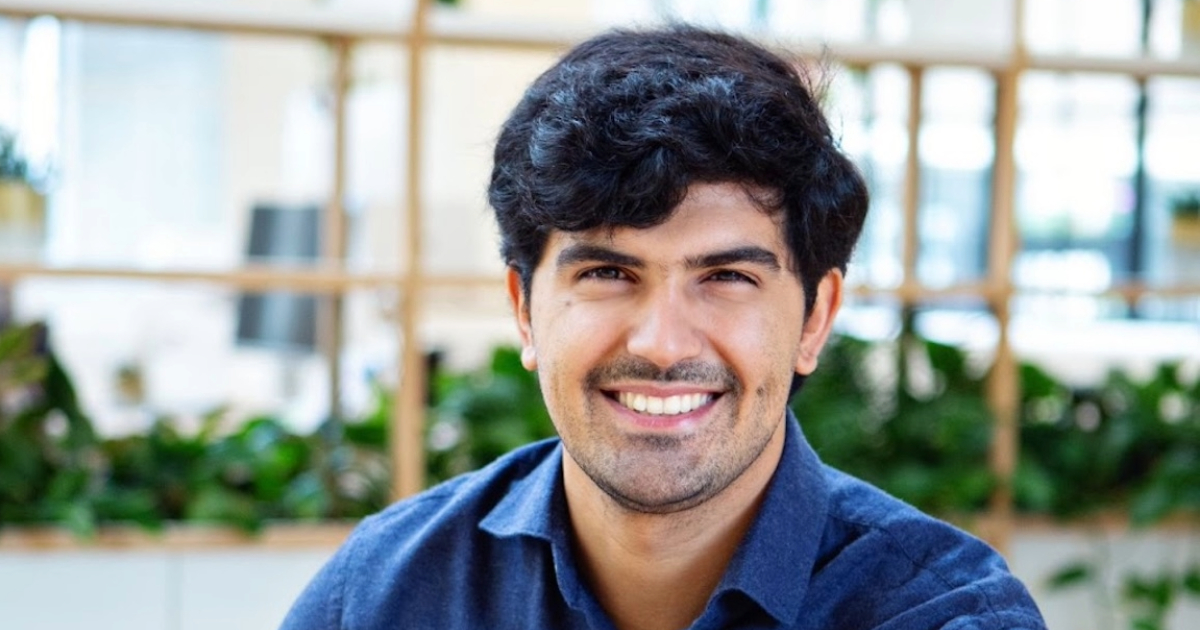
U.S.-based General Catalyst is one of the largest venture capital firms globally, with a diverse portfolio of companies across various industries, including healthcare.
Alexandre Momeni, a partner at General Catalyst focusing on AI infrastructure and health/bio, sat down with MobiHealthNews to discuss the investor’s perspective on funding emerging technologies, the risks associated with these investments and the potential for the technology to change society as a whole.
MobiHealthNews: What do you consider when investing in emerging technologies?
Alexandre Momeni: I think first and foremost, at General Catalyst, when we invest at the early stage, and I know you’ll hear this from every investor, but it’s true, we just really focus on the founders. Many times, especially if you are focusing on frontier tech, the founders will have done a Ph.D. in that space, will spend many years in the best institutions building technology in that space and will have a huge unfair advantage on any knowledge that you can make up.
The most important thing, I think, is really focusing on the founders, understanding what they have actually accomplished, not just where they have been, and what their pace of learning is and sort of the intuition that they have about the direction in which the world is moving.
What excites, I think, all of us investing in technology, especially when we are investing at the frontier, is the fact that when technology suddenly goes from science to engineering or sort of on that cusp, you start seeing, most of the time, a pretty significant platform change in the world. And so you then start facing all these exciting additional questions, which is, well, what are the products that can be built on top of this? And how will business models work to bring this technology to the world?
Our role as venture capitalists becomes, if you will, more relevant because we can draw lessons from history and lessons from across how markets are functioning today to better understand how the world of tomorrow will be architected.
Brain-computer interfaces, obviously, are very in vogue but have been for many years. We recently invested in a company in that space. And obviously, in the BCI space, there is invasive, and there is non-invasive. Those are very different levels of risk and, therefore, will serve different populations, at least to begin with.
But whether it is on the medical side or the consumer side, we have a firm belief that the technology is evolved enough today that we’re probably less than a decade away from having real, at least like read-only BCI and then potentially read and write, which I think is what some of the more invasive businesses are doing today. That is exciting when you think about all the different product experiences and equalizers that it could create for society.
At the same time, we have a responsible innovation thesis, and we do need to make sure that when we invest in this space, we do so with founders who are principled in what they are trying to accomplish and aligned with our values. Because, as with any technology, especially with one here, which is effectively entering the brain, we want to make sure that we’re backing companies that are using that to create both economic and societal value rather than use them for nefarious or destructive means.
MHN: What most excites you about these technologies, and what makes you nervous as an investor? Are there types of technologies that interest you that you will always consider investing in?
Momeni: We currently look at most BCI and surgical robotics, including autonomous robotics. We are spending a decent amount of time looking into the drug development and drug design space. So, what excites us, as a whole, is companies that are developing, most of the time, software but we look at hardware as well that can create a meaningful step change in society in the way things are currently being done.
The question that is important to ask is, “So what?” If we have this breakthrough, so what? And when the answer to the “so what?” is this will have a profound impact on the world, we will get excited.
Like BCI, if it works, it will have a profound impact not only on patients who are currently suffering from disabilities but actually on the entire world of computing. Because if you can stream your thoughts and mind to control and communicate, does it really make sense to have mobile phones as a form factor? Or computers? Or anything else?
And so, the entire stack will likely be rethought around this new experience that removes friction in the human experience. For example, today we need to use a remote control to control our TV. We needed to write to each other via an interface to be able to effectively collaborate and function as families or societies as a whole. You know, that entire premise may be put into question if brain-computer interfaces work and we understand how to rebuild and redesign the entire experience around that.
What makes us nervous is, look, one is obviously from a risk perspective. These are businesses that, again, are quite risky. The quality of success is pretty low. They are quite capital-intensive at times, so you need to invest more money while taking more risk.
And so the way we try to think about these things is, luckily, we have a large fund, and we try to take a portfolio approach to it where we believe it is important fundamentally, in every fund, to take a certain number of bets which are higher risk but where the payoff for the economy and society can be massive. And we will balance that with things that we think are still incredible opportunities that are going to do super well but are probably less risky. So, you just need to be thoughtful about it in terms of portfolio construction.
And the other thing that obviously makes us nervous is just about when these companies end up getting unintended consequences through some of these technologies, and just making sure that we’re really thoughtful about that. And that is something that we try to address directly in our diligence process.
In terms of how we conduct due diligence and look at these things, what we try to do is we basically spend a lot of time with academic institutions and companies that are building in that frontier. There’s a small community of people that have been in the space for a very long time and have learned, through lack of a better word, they have really learned through burning hundreds of millions of dollars in some of these labs. They have seen it.
Part of the joys of being an investor is we spend our time speaking to people who are, like, 100 times smarter than us.
I think that is the interesting part: We get to learn from them and be part of their stories. Most of the time you’ll find that to be really good, you have to be good at three things: You need to be strategic, you need to operate at the right altitude, and you need to be able to simplify things.
This is a space that is super complex. It is very easy to get lost in the details. It is very easy to go after a low-value problem that just looks shiny. Those three things make a great founder in this space.




